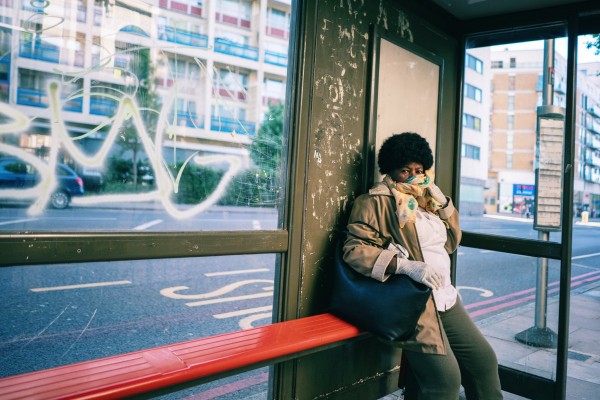-

Why the neoliberal agenda is a failure at fighting coronavirus
Why do governments compensate for private capitalism’s failures in the military but compensate so much less in the medical industries? And when governments do compensate in the latter, why so differently, varying from much in some countries to little to almost nothing in others? Neoliberalism’s ideological power, varying from country to country, provides an answer.
-

Health workers: From praise to protection
Crises sometimes bring out the best in society and sometimes—or even at the same time—they clarify what is so darkly wrong within. In the particular case of the commitments and risks taken by the front-line workers that we apparently value so deeply now, the contrast lies in how little they were valued before.
-

Facing our plague: COVID-19 and Albert Camus
Acknowledging the deep indifference lurking in the world is not cause for despair. If we steadfastly face and acknowledge it even as we battle against its manifestations, we realize that it is precisely our confrontation with reality that grounds our existence, something we must embrace if our life-journeys are to be deep and real rather than superficial and illusory.
-
Online activism during COVID-19: A case study in rent strikes
Historically, rent strikes have resulted in successful outcomes and forced governments to amend issues faced by tenants. The COVID-19 pandemic has highlighted the symptoms of an ongoing collective struggle among renters, and brought to the fore many of the systemic challenges they face. Will the Canadian state tend to them, or leave them to worsen?
-
Revitalizing left internationalism
In concert with people around the world doing good work, we can resist despair and isolation. We can build strong relations, individually and collectively, across movements and borders. We can recognize our responsibilities, rooted where we are, in getting one another free. We can win a new world by winning across the world.
-
Can a pandemic be boring? Yes, and that’s not necessarily a bad thing
Philosophers and psychologists teach us that boredom can be a good thing when it provides impetus for articulating our moral commitments and pursuing the personal and societal changes needed to realize them. There is reason to believe that is happening now. Let us hope that once the pandemic is behind us, and we’re left dealing with its fallout, we will all reap the benefits of that realignment.
-

Is Manitoba gearing up for a major overhaul of its public education system?
The ideological approach to education reform promoted by DeVos and Cruz, two of America’s leading advocates for dismantling and defunding public schools, echoes Manitoba’s creation of a commission in 2019 to review the provincial school system and propose a “renewed vision for kindergarten to Grade 12 education,” and “ignite change” to existing systems and programs.
-

COVID-19 and the racialized dimension of seafaring work
Seafaring work is uncertain, demanding and, at times, dangerous. The pandemic has offered paramount, real-time lessons for the labour behind international trade and tourism. Workers deemed disposable steer the world’s flow of wealth, and Filipino overrepresentation in this sector is not accidental.
-

The Day After: Animals
This marks the first installment in an ongoing curated series that asks contributors to imagine the perils and possibilities that will ground our collective response to or emergence from the COVID-19 crisis. The first edition features contributions from Rosemary-Claire Collard, Zoe Todd, Kendra Coulter, Stephanie Rutherford, and Jonathan Luedee.
-

Venezuela and the COVID-19 pandemic
As of May 25, Venezuela has recorded 1,121 coronavirus cases (22 per million inhabitants) and only 10 deaths. How have these positive statistics been achieved when for years the mainstream media—along with the United States and its allies, including Canada—has been heralding the imminent collapse of the country?






